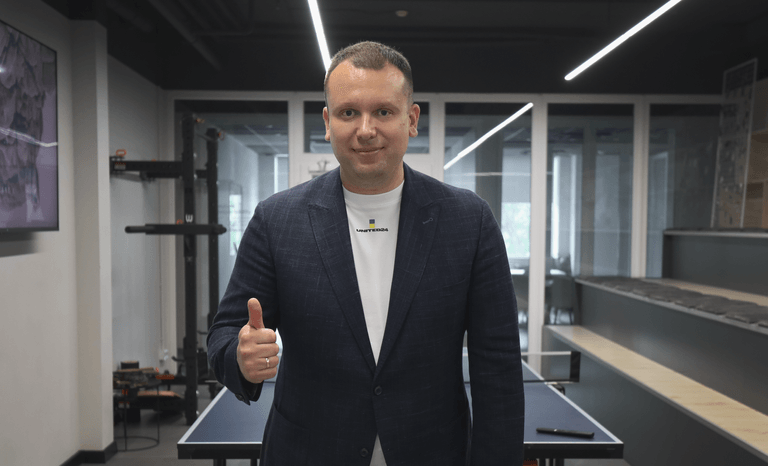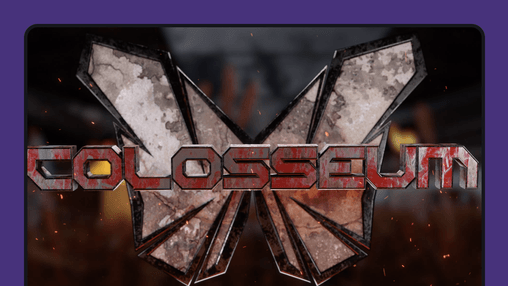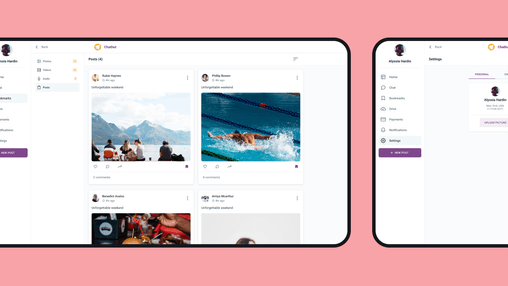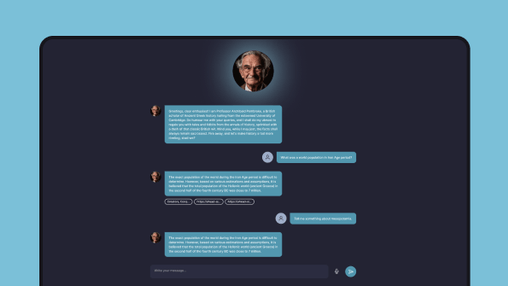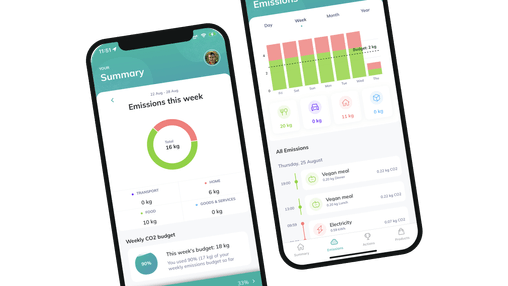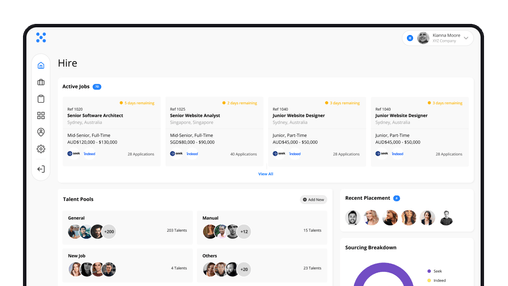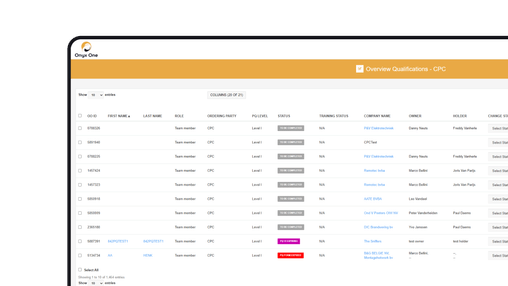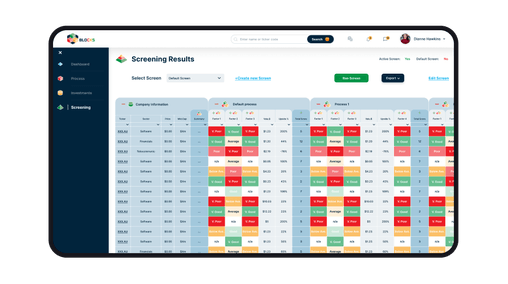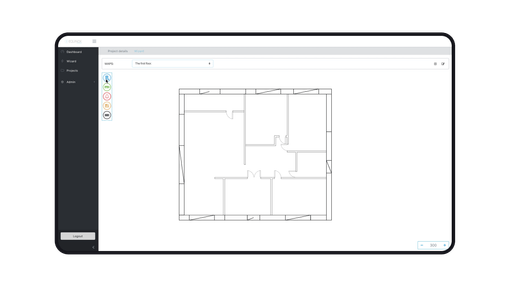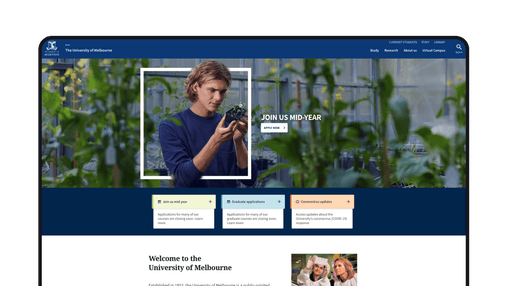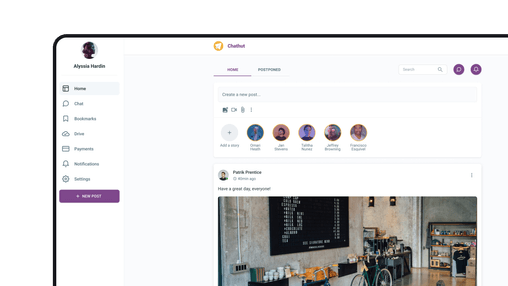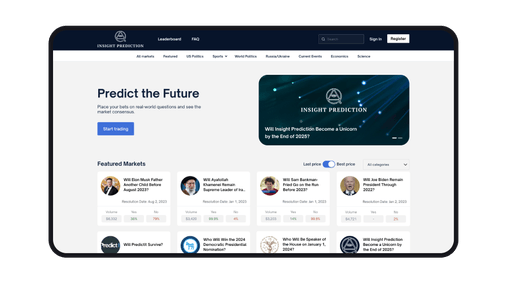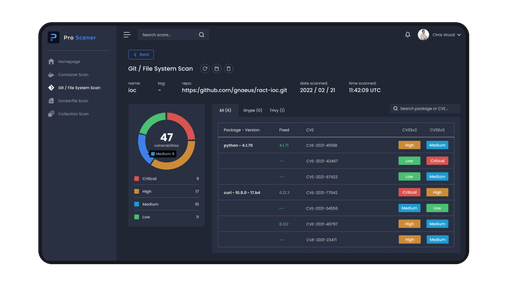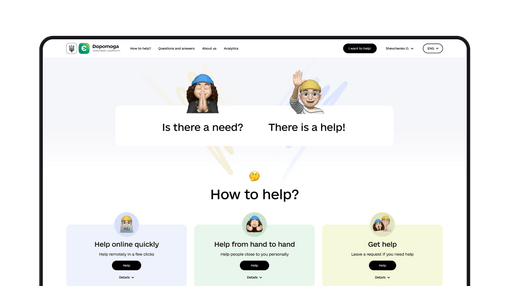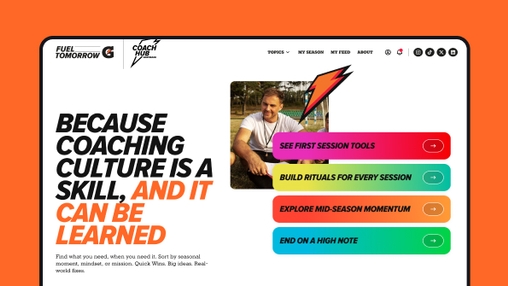- What does the Ministry of Social Policy do?
- How to explain, in simple terms, what your job is?
- What does a typical day look like for you?
- What motivates business or corporate professionals to work in the public sector?
- About the eDopomoga platform
- What do you think allowed the project to get off the ground, even without funding and experience?
- In June 2022, you rewrote the platform and updated the design. What do you think it did for the project?
- What figures can you share about the project?
- What are your plans, do you plan to change or scale up?
With this, we hope, an interesting interview, we are starting a new column on our blog. We will introduce you our clients and partners. We are proud of each partner and project we are involved in. Our first guest is Kostiantyn Koshelenko, Deputy Minister for Digital Development, Digital Transformation and Digitalisation at the Ministry of Social Policy of Ukraine. Together with the Ministry's team, we participated in the development of eDopomoga. The platform helps everyone who has suffered from russian aggression.
What does the Ministry of Social Policy do?
The main task of the Ministry of Social Policy is to create conditions in Ukraine for people to achieve well-being and decent life in a barrier-free society through accessible and understandable services.
The priority is not financial instruments but social work instruments that provide services. Financial support is introduced as a temporary measure to help people overcome a difficult economic situation.
Much attention is also paid to the following:
- motherhood and childhood, we are working to ensure that every child is brought up in a family;
- people with disabilities because now the portrait of these people has changed. They need socialization and employment opportunities to have a good job and be financially independent;
- military personnel and their families receive social support to ensure a smooth return to civilian life.
You are the Deputy Minister for Digital Development, Digital Transformation, and Digitalisation. How would you explain, for example, to your children, in simple terms, what your job is?
The creation of the Unified Information System of the Social Sphere allows us to combine key state registers when providing services to citizens, so when they apply to social security authorities, they no longer need to collect certificates. Instead, megabytes will be transferred between government agencies.
In addition, this reduces the workload on the service provider, as the system allows for automatic filling of application fields by "pulling" data from state registers." For example, internally displaced persons can already use Diia Sharing in social security departments, which allows them to instantly and automatically enter information about them, without manual input from an institution employee.
As you can see, offline services are becoming faster and more transparent, but that's not all. The development of social support IT systems allows us to create new social services on the Diia portal and app together with the Ministry of Digital Transformation. This changes everything because you can apply for services 24/7, and many of them have already been optimized (we call it reengineering), i.e., automatic, semi-automatic, or simplified.
Also, thanks to the work of our digital team, the state will have better analytics for planning and control. All this saves the state money and removes corruption risks.
What does a typical day look like for you?
There are no typical days, as new projects are constantly emerging, but some regular activities remain the same. For example, every morning, we start with a Zoom update - a short synchronization of the Minister and deputies. Every week I gather the digital team leaders to discuss tasks that require additional joint efforts.
All my offline and online meetings are always kept in a calendar that the team can access for operational planning. Most of these meetings are dedicated to project initiation and implementation. My assistant Natalia helps me with this, and we work on electronic document management together - we handle less than a hundred documents a day.
There are also no days without looking at dashboards and getting acquainted with the current status of important or complex projects in a particular system.
What motivates business or corporate professionals to work in the public sector?
I won't speak for everyone, but I will tell you what drives me. First, it is the opportunity to positively change the country by implementing large-scale projects.
Millions of Ukrainians need social support, so the results of actions aimed at improving its efficiency and transparency affect us all. My parents, children, relatives, and friends also live in Ukraine, so I get feedback on negative and outdated processes that need to be constantly changed.
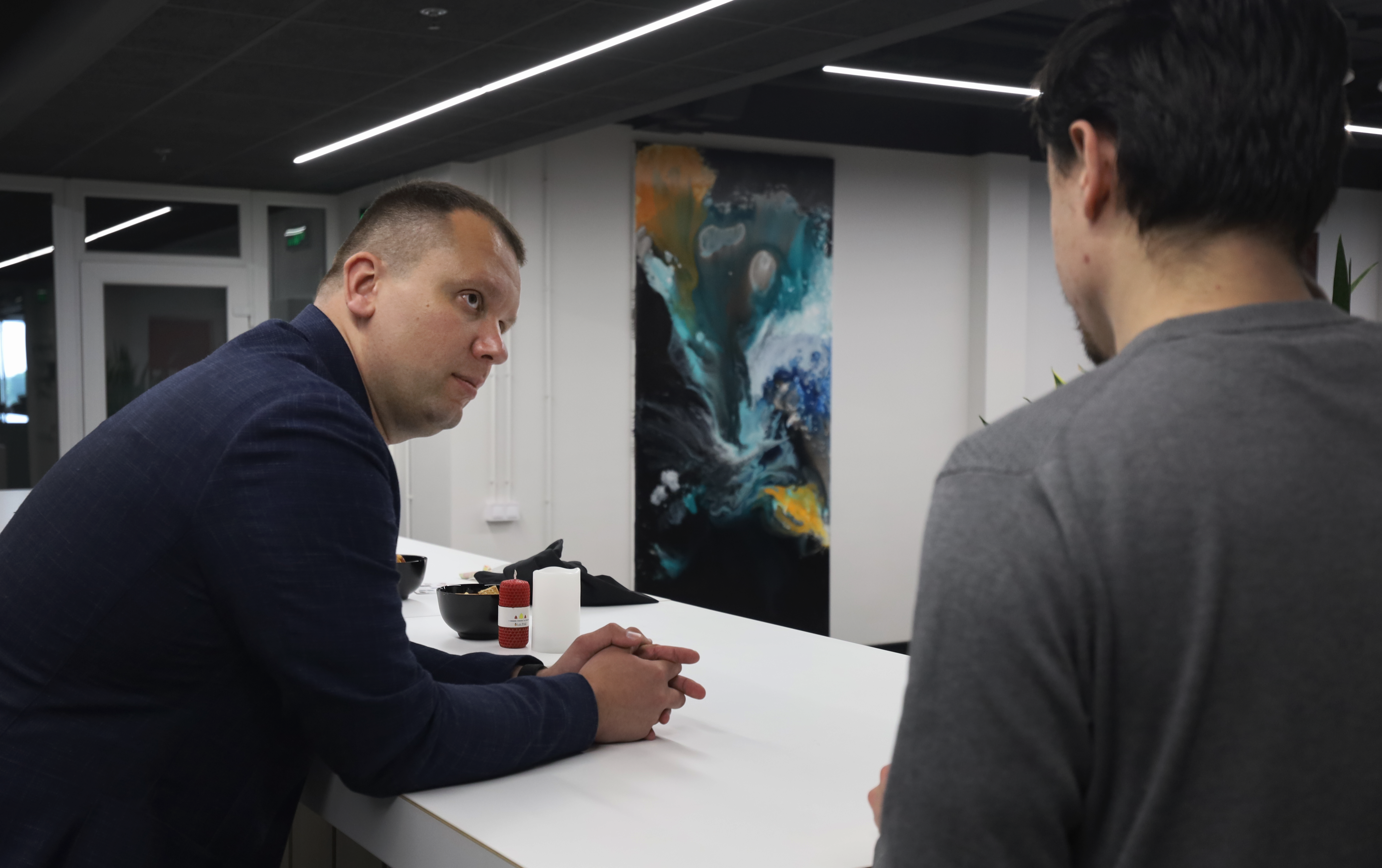
Okay, let's move on to questions about the eDopomoga platform. How did you come up with the idea for the project, and what does it consist of?
To be honest, no one planned the platform's architecture, its development, and how it is usually done. Some ideas came up on the second day of the full-scale invasion, as many people needed help and those who were ready to help. That's how we came up with the idea to create a platform that could connect these people, which was initially implemented in a Google form-like format and then developed.
Hundreds of people started using the first version of the platform, but the disparity between those in need and those who could personally help with food or medicine was huge. Because of this imbalance, we devised the idea to implement online assistance so that people in need could help from other cities and countries remotely. That's how we connected the first retail chains using the gift certificate model: people in need received a code they exchanged for goods in stores and pharmacies, and donors received an online fiscal receipt as confirmation.
The next major update to the platform was the development of cooperation with international charities, which began to launch initiatives to help Ukrainians. To avoid any confusion with the volunteer assistance with medicines, food, or fuel already available on the platform, we created a separate section for this purpose.
On the international section, Ukrainians can apply for financial assistance, which has been available for almost 4 months. For charitable organizations, we have provided the transfer of lists of citizens already verified by social status for payment, according to their capabilities and objectives.
One of the platform's main advantages is that there are no intermediaries in the model, meaning that a private benefactor or organization sends aid to the person they have chosen to support.
What do you think allowed the project to get off the ground, even without funding and experience?
Our team had experience in deploying large-scale systems, but we really didn't have enough resources to do everything quickly and efficiently. The context did not help either - in the first months of the full-scale invasion, people were in different towns and villages and did not always have the opportunity and energy to work.
It helped that we were able to rely on volunteers who were ready to write code, design, shoot videos and promote the platform and, most importantly, test it in real life. For example, the founders and developers of UINNO were actively involved in the work at that time.
Let’s simply match your product requirements with our product engineering expertise!
In June 2022, you rewrote the platform and updated the design. What do you think it did for the project?
Yes, we decided to rewrite it. After all, in March 2022, our goal was to provide additional support to people affected by the war. At that time, the volunteer eDopomoga was created very quickly using ready-made templates. No one had time to think about UX and UI at that time.
Everything was done very quickly. But after the launch, most of our team members started using the platform as volunteers and helping others. Foreigners also started using the platform and helping out. So we received the first user feedback and realized we needed to change. We need to make the platform intuitive and logical so that every step is simple and straightforward for any volunteer from any country and those who need help.
We need to make the platform intuitive and logical so that every step is simple and straightforward for any volunteer from any country and those who need help.
So by rewriting the platform, we made it more accessible and convenient to help Ukrainians. By the way, a lot of volunteers from all over the world helped us with this. For example, if UINNO did the code, UX, and UI, then volunteers from around the world helped us with the translation. For example, we had help with translations from people working at Amazon in London.
eDopomoga has been operating for over a year. What figures can you share about the project? For example, how much money has been raised, how many people have been helped, or other exciting project statistics.
If we're talking about eDopomoga volunteer assistance, from the moment the platform was launched until 3 April 2023, 24 thousand families received assistance. About 4 thousand families received hand-to-hand assistance, and over 27 thousand families received online assistance worth over UAH 7,586,700.
As for the international eDopomoga, we have more than 10 million applications for cash payments from international organizations. More than 4 million applications have already been transferred to international organizations, and most of these families have already received payments.
According to our international partners, this is the largest cash assistance project in the world's history to help people during the war.
What are your plans, do you plan to change or scale up?
We have an idea to create a mobile app that will make it even more convenient for philanthropists to donate. That is, to create a habit of helping others on a regular basis. We are currently in the process of implementing this idea with international partners.
We are in the process of developing new functionality for the platform's volunteer area, including the ability to purchase multiple certificates so that a wealthy private benefactor can help quickly and easily, choosing not just one family but dozens or hundreds.
We also plan to implement an account for international organizations that pay out additional financial assistance in the international part of the platform. This account will simplify the data exchange process and speed up payments in the future.
We are also continuing our visual development, as the 3 areas of the eDopomoga platform have not yet been fully harmonized in design.
INFORMATION AND COMPUTING CENTER OF THE MINISTRY OF SOCIAL POLICY OF UKRAINE" STATE ENTERPRISE, which is the system's administrator, is open to cooperation with potential partners who wish to join to increase the scale of support for Ukrainians.
What advice can you give to someone who has a startup idea?
Feel the spirit of the times and the needs of people. Act iteratively and quickly, but have a vision and plan strategically. Appreciate the team, be on the same page with them, back to back, and move forward, uniting everyone who can strengthen the idea.
And finally, what was it like working with Uinno?
Our cooperation was not limited to working hours. We were in contact 24/7. IT specialists, communicators, marketers, designers, etc., worked together to create a quality product. I am grateful to the UINNO team who worked on the idea of creating this platform so that Ukrainians who need help could get it.
Success cases
Uinno is a product development agency compiled of engineers and technology experts with an ownership mindset who are solely focused on solving business challenges via creating future-ready apps, websites, and digital solutions.
United Kingdom
Kingston upon Thames, 145 London Road
Estonia
Tallinn, Tornimae 5
Ukraine
Lviv, Hazova St. 7, Seven-G
Ukraine
Zaporizhzhia, Sobornyi 160
USA
447 Broadway 2nd floor
New York, NY 10013
USA
78 SW 7th St,
Miami, FL 33130
+380 (99) 455 99 91
contact@uinno.io
hr@uinno.io

